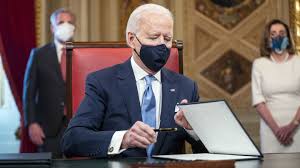
By Seymour Hersh, Substack, 7/13/23
This article is behind a paywall, but it covers several issues as relayed to Hersh through his intelligence and government contacts. With respect to Turkey’s Erdogan lifting his opposition to NATO membership for Sweden, it was not mainly the promise of F-16’s from the US military, but according to Hersh:
I have been told a different, secret story about Erdogan’s turnabout: Biden promised that a much-needed $11-13 billion line of credit would be extended to Turkey by the International Monetary Fund. “Biden had to have a victory and Turkey is in acute financial stress,” an official with direct knowledge of the transaction told me. Turkey lost 100,000 people in the earthquake last February, and has four million buildings to rebuild. “What could be better than Erdogan”—under Biden’s tutelage, the official asked, “finally having seen the light and realizing he is better off with NATO and Western Europe?” Reporters were told, according to the New York Times, that Biden called Erdogan while flying to Europe on Sunday. Biden’s coup, the Times reported, would enable him to say that Putin got “exactly what he did not want: an expanded, more direct NATO alliance.” There was no mention of bribery.
A June analysis by Brad W. Setser of the Council on Foreign Relations, “Turkey’s Increasing Balance Sheet Risks,” said it all in the first two sentences—Erdogan won re-election and “now has to find a way to avoid what appears to be an imminent financial crisis.” The critical fact, Setser writes, is that Turkey “is on the edge of truly running out of usable foreign exchange reserves—and facing a choice between selling its gold, an avoidable default, or swallowing the bitter pill of a complete policy reversal and possibly an IMF program.”
Another key element of the complicated economic issues facing Turkey is that Turkey’s banks have lent so much money to the nation’s central bank that “they cannot honor their domestic dollar deposits, should Turks ever ask for the funds back.” The irony for Russia, and a reason for much anger in the Kremlin, Setser notes, is the rumor that Putin has been providing Russian gas to Erdogan on credit, and not demanding that the state gas importer pay up. Putin’s largesse has been flowing as Ergodan has been selling drones to Ukraine for use in its war against Russia. Turkey has also permitted Ukraine to ship its crops through the Black Sea.
One of Hersh’s sources with access to relevant intelligence has told him that, despite what the Washington Post and NYT have been reporting, there is no evidence that the Prigozhin debacle of a few weeks ago has weakened Putin but just the opposite: “Putin emerged stronger than ever after the Prigozhin implosion, which led to the absorption of many of his mercenaries into the Russian army.”
With respect to the sending of the controversial cluster munitions to Ukraine, an administration official admitted that these are only now being sent because “that’s all we got left in the cupboard.” Interestingly, this official also told Hersh that claims being made that Russia has used them already during this war is a false attempt to cover up a morally questionable move by the US that will have no effect on the direction of the war: “the administration claims that the Russians have used them first in the war, which is just a lie.”
Finally, there are insider statements to Hersh that Victoria Nuland will not be Wendy Sherman’s replacement as Deputy Secretary of State and CIA director William Burns is seen among his colleagues in the government as an opportunist rather than a principled diplomat or intelligence agent.
Full article available to subscribers here.